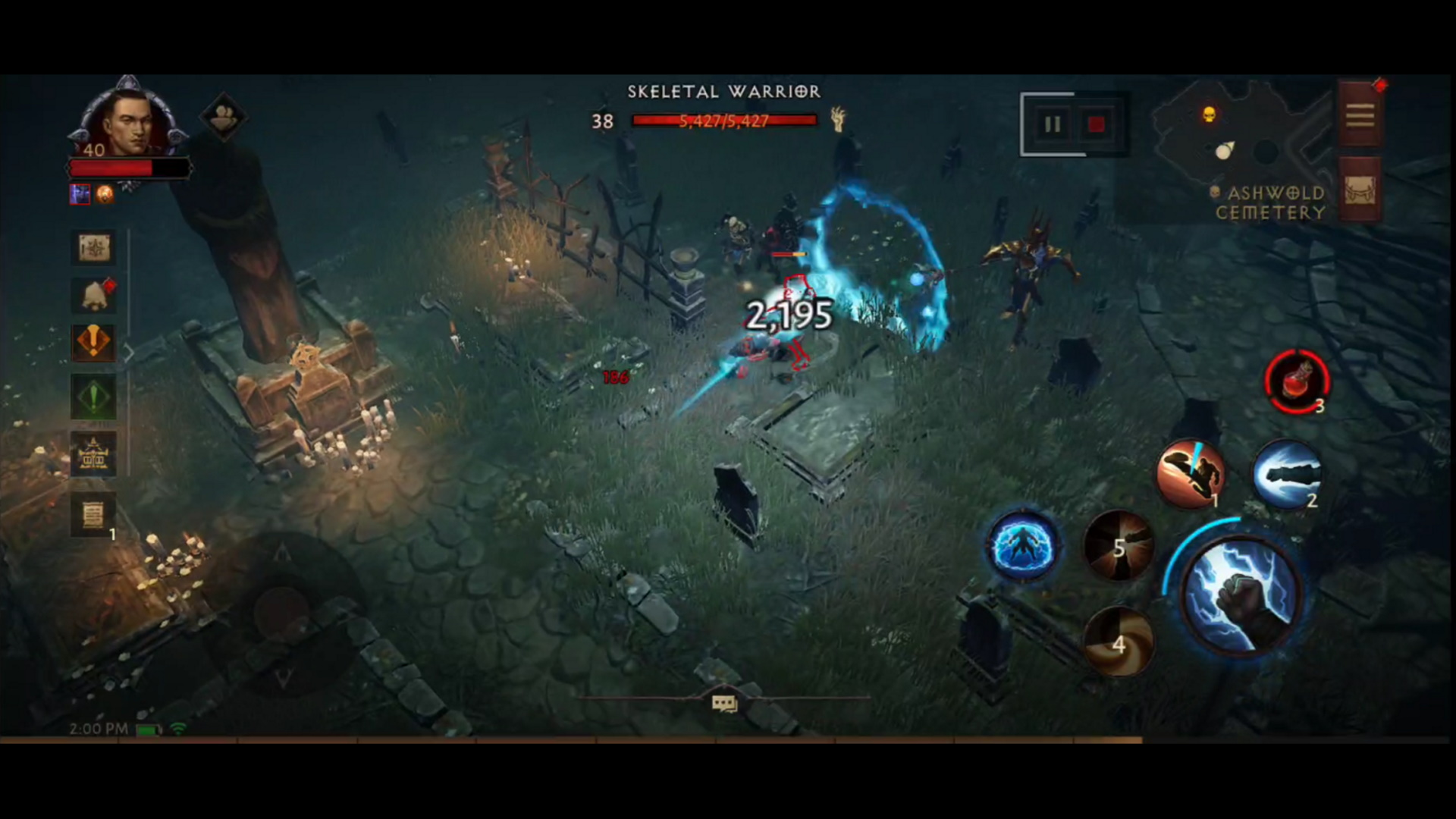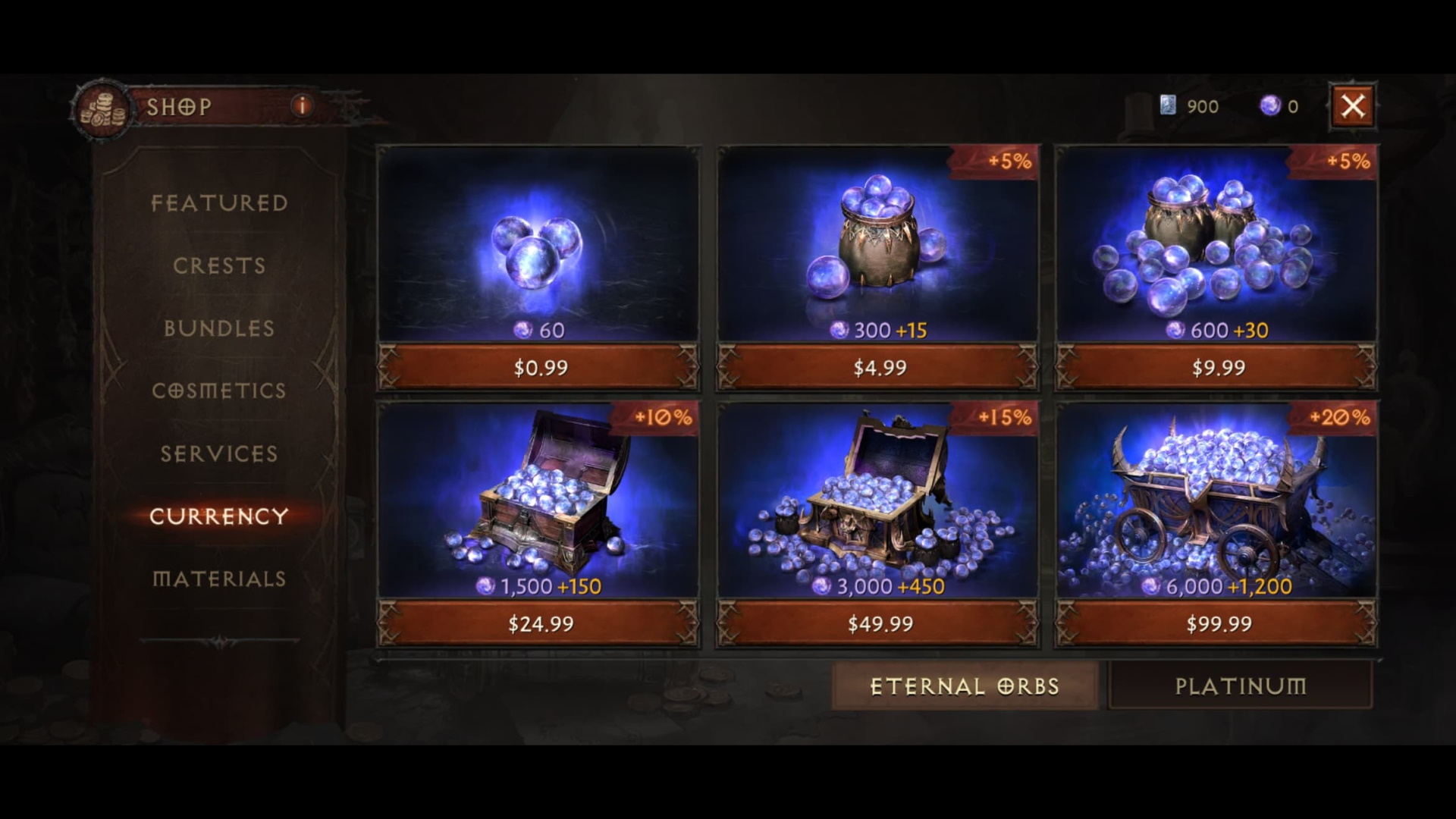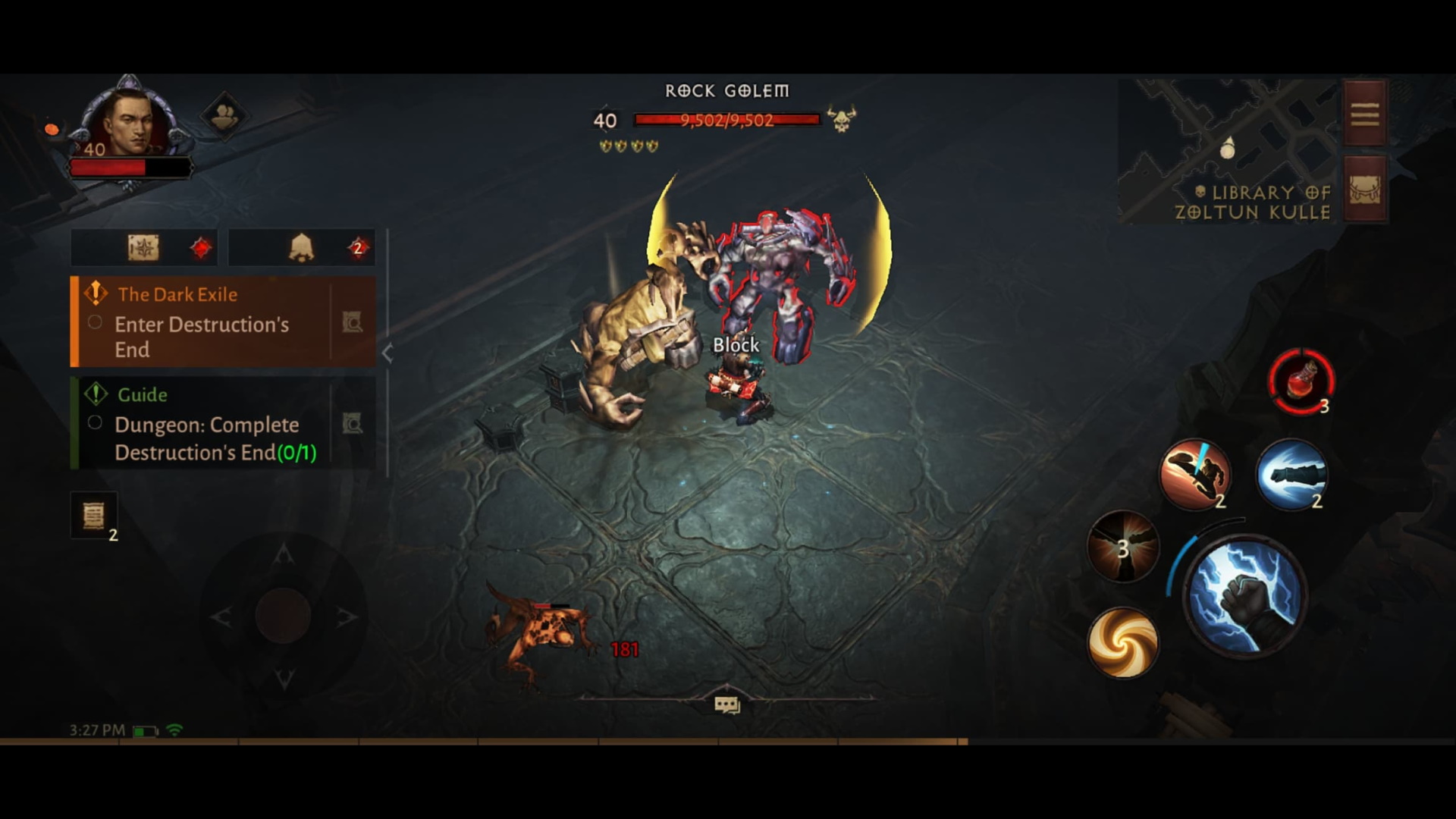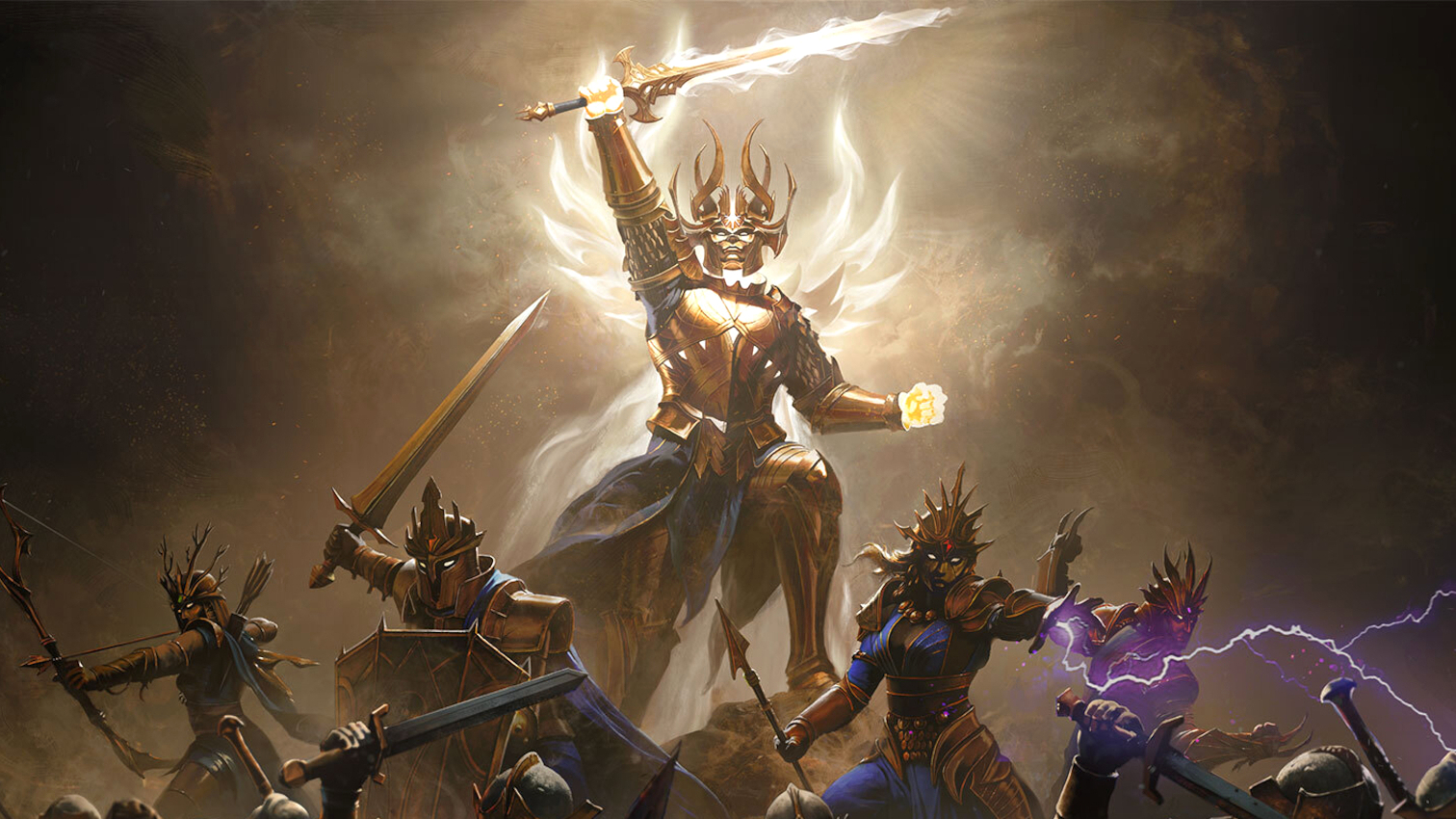TechRadar Verdict
Diablo Immortal's smooth controls and gameplay are crushed under the demonic weight of a tangled mess of subsystems, currencies, and microtransactions.
Pros
- +
Core gameplay is recognizably Diablo
- +
Controls are streamlined and effective
- +
Looks and sounds good
Cons
- -
Needlessly complex in-game currencies and systems
- -
Staggeringly exploitative microtransactions
- -
A fairly short experience with hamstrung endgame
Why you can trust TechRadar
Time Played: 15 hours
Platform: Android
The legions of hell are endless, constantly streaming through the breach in search of fresh blood to drag back to their overlord. Hanging their new captures upside-down, these fiends will slowly drain their victims of everything over long hours and agonizing days. Then, once nothing is left, the poor doomed souls will be discarded, as they – or more exactly, their wallets – will have nothing more to give. Diablo Immortal has a lot of demons, too, but they’re kind of the lesser "prime evil" in the latest entry for the series.
For the first time since Sierra batted cleanup on the Diablo: Hellfire expansion back in 1997, Blizzard has let someone else take a significant role in creating a Diablo game. Developed in tandem by both Blizzard and NetEase, Diablo Immortal shows flashes of the experience the former has with the action-RPG series, and the latter with mobile platforms. But layered over those positive contributions are piles of baggage, as Diablo Immortal has been lumbered with a group of features that represent the absolute worst of the mobile gaming market.
Diablo Immortal essentials
- What is it? A massively multiplayer gothic fantasy action-RPG.
- Release date? Out now
- What can I play it on? PC and mobile (iOS and Android)
A demon by any other name

The original Diablo birthed a new genre – one that I once affectionately referred to as the "mystery shopping game", in reference to the fun I had watching for new blue, yellow, and gold items each time I whacked a loot pinata. The gameplay was once simpler, but over time aRPGs like Path of Exile and Diablo 3 have made choosing your skills and controlling your character varied and tactically engaging. So now I can expect to fire a rain of arrows, teleport, and dash around the battlefield, and slow time around my characters – all as standard features.
What’s new with Diablo Immortal is an aRPG that looks good on a smartphone while also being easy to play in the hands, with no serious need for a controller. Within just an hour or two I was accustomed to Diablo Immortal, and up to speed with making my Monk do flying kicks into the faces of skeletons and demons alike. Avoiding the windup on enemy attacks, grouping enemies to smash them, picking which skills to build, and hoovering up explosions of color-coded equipment from fallen foes are all old hat now, but they’re staples that work as well as ever thanks to a precise control scheme. I was often impatient for my skill cooldowns, simply because I wanted to get back to zooming around the battlefield like a kick-powered missile.
Come to think of it, Diablo Immortal has clearly confused itself for a wedding, since it’s brought something new, something old, something borrowed, and something that makes its player base blue.
Blizzard has always been at its best when it perfects through polish: borrowing and customizing elements from other games to fit its own themes, refining features until we take them for granted and see them winding through the DNA of entire genres. Diablo Immortal borrows plenty, but it borrows in the same way Diablo 3 did, and there hasn’t been much refinement since then.
Come to think of it, Diablo Immortal has clearly confused itself for a wedding, since it’s brought something new, something old, something borrowed, and something that makes its player base blue.
Melancholy of infinite microtransactions

There’s no way to talk about Diablo Immortal without confronting the 55-ton demon in the room, which takes the form of a cash shop, rampaging through the whole of the game. This microtransaction abomination slows its trail of destruction to shove entire features into its mouth, gulping down critical parts of Diablo Immortal. Put simply, the microtransactions have compromised some of the most important elements of a Diablo game.
Every drop in an aRPG is sacred to me. Each new colorfully glowing addition to my inventory from treasure chests and defeated enemies represents the potential for a surprise. Each one could have a weird bonus that sparks an interest in building my character differently, or simply a big stat upgrade to my weapon that has the wrong colored sockets, leaving me to ponder if it’s worth the change. These tiny little stories are what draw me into an aRPG, and each item is normally a new roll of the dice on a new story.
In recent times aRPG’s have made item drops more common – moving away from the days where I would leap from my chair in excitement when an unidentified Rare or Unique item fountained from the dying body of a defeated boss. But Diablo Immortal doesn’t just flood me with a lot of items, it’s also found a few new ways to rob me of my excitement. By moving the bulk of power and progression into legendary gems (items which go into sockets on my equipment to provide massive stat bonuses and unique passive abilities), Diablo Immortal has trivialized my interest in my equipment.
Normally, the march of time would indicate legendary gems were just the latest in a long line of equipment "Macguffins": the hot new thing to chase at the top of the equipment pyramid. But by making it nigh impossible to get the five-star legendary gems that represent the gateway to endgame play – and asking for an absurd amount of money and/or grind to rank them up even if I do have them – Diablo Immortal has kneecapped itself. Why do I care about my cool new pants, if I’m going to need to spend an absurd amount of money on the legendary gem required to get the most out of them?
Dumpster diving for ham scraps

I feel weird about the time I’ve spent with Diablo Immortal. It’s been one of the better mobile games I’ve played when just running around, doing quests, and punching puny demons in their melon-like heads. But much like the gum I buy in the checkout line, I’m ready to spit it out by the time I get to the car, and all that will be left is the lingering flavor that makes me hungry for a proper meal.
I spent a total of $5 on Diablo Immortal’s battle pass, since I’d been told there’s a great experience in Diablo Immortal for less than $10. I don’t regret my purchase, as I did have some fun, even if I’m not going to take much of anything away from it. I liked getting to hang out with Deckard Cain and finding out what Charsi (Diablo 2’s blacksmith) was up to, smashing some demons, and the ease of control on my phone alongside tweaks like auto-navigation for daily quests. At no point during my questing through the story did I feel like Diablo Immortal was gatekeeping me from moving forward.
Instead Diablo Immortal lingered like a specter of doom over my enjoyment – not completely crushing it, but waiting to rear its head every time I had to interact with the needlessly complex (and abusive) machinery of its currency and crafting systems. Constant reminders of every subsystem and menu I needed to interface with to get my daily allotment of hilts, crests, orbs, essences, coins, pretzels, and samoflanges slowly wore down my ability to wall myself off with the competently executed parts of Diablo Immortal.
Finally, I had to put down my phone and step away from Diablo Immortal, as it had worn me down into the six-piece chicken mcnobody I am today. All that lingers from my time with it is the faint smell of sulfur and brimstone, the vague feeling of needing to make sure I still have my wallet, and the hunger for Diablo 4.

Sarah (She/Her) is a contributor and former Senior Writer for TechRadar Gaming. With six years of experience writing freelance for publications like PC Gamer, she's covered every genre imaginable and probably a few she made up. She has a passion for diversity and the way different genres can be sandboxes for creativity and emergent storytelling, and loves worldbuilding. With thousands of hours in League of Legends, Overwatch, Minecraft, and countless survival, strategy, roguelike, and RPG entries, she still finds time for offline hobbies like tabletop RPGs, wargaming, miniatures painting, and hockey.
